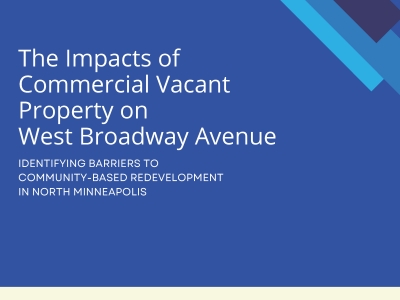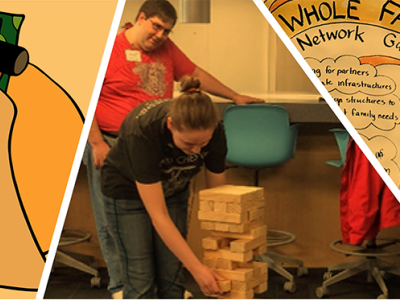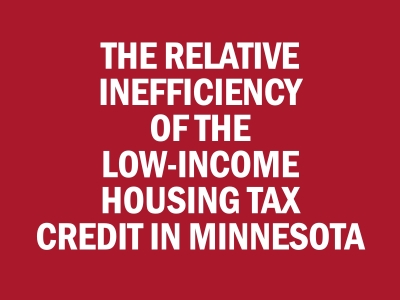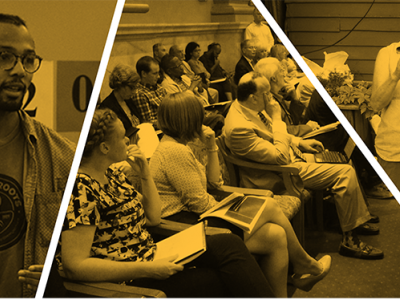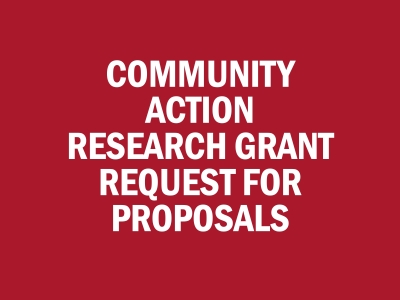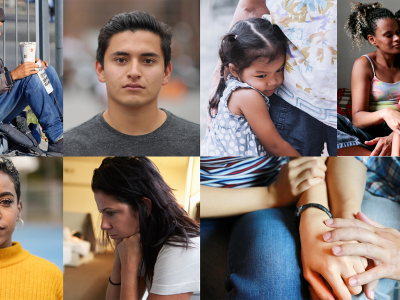The Center for Urban and Regional Affairs is excited to announce that CURA’s Senior Research Associate Dr. Brittany Lewis has been named the 2024 President's Community-Engaged Scholar.
The University of Minnesota President's Community-Engaged Scholar Award recognizes one faculty or P&A researcher annually for exemplary engaged scholarship. The award recipients have demonstrated a longstanding academic career that embodies the University of Minnesota’s definition of public…
- Also, CURA’s support of anti-displacement work receives the 2024 Kingsley Impact Award
- And other legislative and policy news from 2024
Housing advocates and place-based community organizations are celebrating a $10 initial million investment from the Minnesota State Legislature in funding the new Anti-Displacement Community Prosperity Program…
Excerpted from Local Data for Equitable Communities Resource Hub, a publication of NNIP…
In February, we announced that we would not be issuing an open call for projects this summer, in an effort to be more thoughtful and strategic about our work. Since then, we have spent time working to establish more equitable and flexible processes around our application process, project selection criteria, program evaluation, and communication with partners. Important changes to the program include:
- Year-Round Availability of Kris Nelson Application: We've opted to keep the Kris Nelson application open year-round, offering organizations greater flexibility in navigating the…
The City of Minneapolis faces a growing issue with vacant, abandoned, and deteriorated properties, particularly in areas like North Minneapolis. The City has committed to getting these properties back into functional usage, and in partnership with the Center for Urban and Regional Affairs’ (CURA) Kris Nelson Program, the North Minneapolis Promise Zone analyzed the City’s redevelopment process. Through a case-study and survey of West Broadway Avenue in North Minneapolis, it was found that numerous properties in the vicinity have…
Researchers: David Beard (Professor of Rhetoric, Department of English, Linguistics, and Writing Studies, University of Minnesota Duluth); Kim Dauner (Associate Professor of Healthcare Management, Department of Economics and Healthcare Management, University of Minnesota Duluth); Julie Slowiak (Associate Professor of Industrial and Organizational Psychology, Department of Psychology, University of Minnesota Duluth); and Kathryn Van Wert (Assistant Professor of English, Department of English, Linguistics, and Writing Studies, University of Minnesota Duluth)
An interdisciplinary team works with critical access hospitals in Ely, Grand Marais, Bigfork Valley, and…
CURA is pleased to announce the recipients of this year′s Community Action Research Grant:
- David Beard (Professor of Rhetoric, Department of English, Linguistics, and Writing Studies, University of Minnesota Duluth), lead researcher: A Partnership…
Researcher: Lynette Renner (School of Social Work)
Intimate partner violence (IPV) includes physical, sexual, emotional, and economic abuse by an intimate partner. It affects more than one-third of all women can have harmful consequences on the health, well-being, and safety of individuals, families, and communities. Most courts in the U.S. mandate participation in batterers’ intervention programs (BIPs) as part of domestic violence/IPV convictions, yet most BIPs are never evaluated. The purpose of this community-engaged project is to evaluate the BIPs run through Domestic Abuse Project (DAP), a Minneapolis-based non-profit agency whose mission is to build…
Researcher: Bonnie Keeler (Humphrey School of Public Affairs)
Tribal communities face unique threats from environmental contaminants due to high reliance on subsistence foods and cultural uses. Tribes seeking to protect their lands and waters from contamination can seek federal authority to establish and enforce water quality standards. However, the process of asserting tribal authority to regulate surface waters is expensive, time consuming, and requires careful legal and political calculations. The proposed project will work in collaboration with three Minnesota tribes to document past successes and challenges in asserting authority to regulate and protect…
This Office for Public Engagement (OPE) panel discussion was produced as part of the University's Research Ethics Week at 10 a.m. Thursday, February 29 via Zoom. The panel discussed ethical implications for research when working with community partners. Panelists include:
- School of Social Work Assistant Professor Saida Abdi, a 2022 Urban Research and Outreach-Engagement Center Research Agenda grant recipient who works on cultural adaptation of trauma systems for immigrant and refugee youth;
- Center for Urban and Regional Affairs Director of Community Based Research C. Terrence Anderson who supports faculty, staff, and…
Executive Summary
The Low-Income Housing Tax Credit (LIHTC) is less efficient with public subsidies than other subsidized housing development programs in the State of Minnesota. Public subsidy is lost at the very beginning of tax credit deals when developers must sell the credits to investors. Historically, the market has resulted in credits being sold for 87 cents on the dollar, a loss of 13% in the value of the credit at the outset. We are unable to estimate the full cost in dollars of this leakage due to lack of data. Second, administrative costs are higher for tax credit projects than for non-LIHTC projects. We estimate a cost of up to $1.…
The Hennepin-University Partnership, a program of the Center for Urban and Regional Affairs, is accepting applications for the HUP Collaborative Research Assistantship (HCRA). The HCRA provides paid summer positions for six graduate research assistants to conduct applied research with Hennepin County, while partaking in learning opportunities as a part of a multidisciplinary cohort. This program is a unique opportunity to work with an innovative, nationally-regarded local government on research that addresses complex social challenges. Graduate students from any school or department who are interested in engaged research or careers in…
In an effort to be more thoughtful and strategic about our work, we have decided not to issue an open call for summer Community-Based Research (CBR) projects with the Kris Nelson Program. This pause is not a standstill, but a deliberate step toward growth. We recognize the importance of taking this time to restructure our approach, seek feedback from past partners to evaluate the program's impact, and engage in thorough organizing and sharing of past projects. The summer will also be a period for forging…
The Center for Urban and Regional Affairs (CURA) invites proposals for our Community Action Research Grant (formerly the Faculty Interactive Research Program, FIRP). University of Minnesota faculty are critical resources in exploring issues and concerns important to Minnesota, such as the criminal justice system, demography, state or local economic development, education, employment, energy, the environment, health, housing, state and local government, welfare and…




